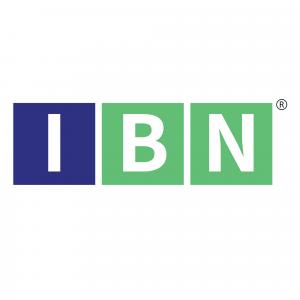Robotic Process Automation Highlighted in Internal Finance Team Evaluations
Modern finance turns to robotic process automation for faster cycle times and sharper compliance accuracy.
MIAMI, FL, UNITED STATES, July 23, 2025 /EINPresswire.com/ -- Inside the finance departments, a fresh wave of internal evaluations reveals longstanding inefficiencies in task management and compliance operations. These assessments are part of a larger shift, as institutions seek to balance existing infrastructures with emerging innovations. The spotlight is currently on identifying low-risk, high-impact areas for immediate optimization. Among the methods being trialed and discussed, robotic process automation stands out for its effectiveness in processing routine and rule-based activities like document validation and compliance screening.As this trend evolves, teams are increasingly drawing on the capabilities of Intelligent Process Automation to go beyond the basics. This next-level approach is enabling banks to automate not just tasks, but entire processes—supporting nuanced decisions, adapting to change, and reducing oversight pressure. By embedding intelligence into automation, finance teams can move toward systems that are not only faster but more adaptive and auditable. As internal evaluations continue to spotlight success stories, the role of robotic and intelligent automation is expected to expand significantly across banking functions.
Streamline compliance checks across multiple accounts.
Get a Free Consultation: https://www.ibntech.com/free-consultation-for-ipa/
Traditional Processes No Longer Fit for Modern Banking Needs
The cost of operational inefficiency is rising alongside inflation. Banks are being forced to confront the limitations of legacy systems and outdated practices. Chief among these issues is the reliance on manual processes, which continue to hamper performance and inflate workload costs unnecessarily.
1. Errors occur frequently in repetitive actions
2. Backlogs in processing large transaction volumes
3. Compliance enforcement lacks consistency
4. Personnel overused in routine data entry
5. Financial close timelines extended
6. Growth met with rising operational spend
7. Hidden inefficiencies affect overall output
Industry consultants recommend that financial firms adopt smarter tools to bridge performance gaps. RPA is proving to be a highly effective means of reducing human workload while maintaining regulatory compliance and process visibility. The result is a leaner, more agile financial operation ready to adapt to future challenges.
Automation Reshapes Core Functions
With rising customer demands and compliance obligations, financial institutions are investing in digital upgrades. Many are replacing outdated methods with automation tools that integrate directly into current workflows. These solutions offer efficiency gains while keeping regulatory and security requirements intact.
✅ Handling transactions faster through automation
✅ Structuring compliance activities using rule sets
✅ Improving reconciliation accuracy with smart tech
✅ Conducting KYC checks via document automation
✅ Scheduling reports through automated data pulls
✅ Routing loan files with automated validation logic
✅ Detecting fraud by combining automation and AI
✅ Logging audit steps through automated systems
These efforts help banks manage scale and complexity without increasing operational risk. Firms like IBN Technologies provide customized solutions that cater to the unique needs of financial services. Their recent work demonstrates the strong results seen from robotic process automation in New York, where institutions are driving digital excellence across the board.
New York's Financial RPA Surge
New York’s financial sector has experienced clear operational benefits through the adoption of robotic process automation. With mounting pressures to reduce manual intervention and boost processing times, many firms are reconfiguring internal operations for digital efficiency. These efforts are translating into stronger, more agile performance benchmarks.
✅ Process speed rose by over 30% in key areas
✅ Over 40% of companies made faster, smarter decisions
✅ Task-based cost savings reached approximately 25%
These figures reflect how automation is evolving from trend to necessity. Firms adopting structured RPA solutions are gaining improved insight, compliance control, and workflow discipline. Experienced providers like IBN Technologies are making a lasting impact, having recently driven results through robotic process automation in New York—proving that enterprise-grade transformation is within reach for banks of all sizes.
Tomorrow’s Banking Starts Today
In today’s high-demand financial climate, organizations across the U.S. are treating automation as an immediate performance priority. No longer speculative; automation is emerging as a key player in improving scalability, speed, and compliance responsiveness in an increasingly digitized ecosystem.
Solutions like robotic process automation are being integrated into daily operations to handle repetitive work with fewer errors. As firms digitize, process automation frameworks provide structural support for deeper automation of pipelines. The institutions moving early on automation are unlocking strategic advantages—from faster data reconciliation to smarter resource allocation. It’s clear that intelligent workflows are not just coming—they’re already here.
Related Services:
1. Intelligent Process Automation: https://www.ibntech.com/intelligent-process-automation/
About IBN Technologies
IBN Technologies LLC, an outsourcing specialist with 26 years of experience, serves clients across the United States, United Kingdom, Middle East, and India. Renowned for its expertise in RPA, Intelligent process automation includes AP Automation services like P2P, Q2C, and Record-to-Report. IBN Technologies provides solutions compliant with ISO 9001:2015, 27001:2022, and GDPR standards. The company has established itself as a leading provider of IT, KPO, and BPO outsourcing services in finance and accounting, including CPAs, hedge funds, alternative investments, banking, travel, human resources, and retail industries. It offers customized solutions that drive AR efficiency and growth.
Pradip
IBN Technologies LLC
+1 844-644-8440
sales@ibntech.com
Visit us on social media:
LinkedIn
Instagram
Facebook
YouTube
X
Legal Disclaimer:
EIN Presswire provides this news content "as is" without warranty of any kind. We do not accept any responsibility or liability for the accuracy, content, images, videos, licenses, completeness, legality, or reliability of the information contained in this article. If you have any complaints or copyright issues related to this article, kindly contact the author above.
Water On Demand Execs Recognized for Opportunity Zone Innovation
Spirulina Source Releases New Video on Automating a Spirulina Microalgae Farm
Holistico Joins The Wealth Engineering Expert Sourcing Consortium
Więcej ważnych informacji
 Jedynka Newserii
Jedynka Newserii

 Jedynka Newserii
Jedynka Newserii

Finanse

K. Gawkowski: Polska w cyfrowej transformacji gospodarki awansowała do pierwszej ligi w Europie. 2,8 mld zł z KPO jeszcze ten proces przyspieszy
Uruchomiony na początku lipca przez Ministerstwo Cyfryzacji i BGK program „KPO: Pożyczka na cyfryzację” cieszy się dużym zainteresowaniem. Samorządy, uczelnie oraz firmy mogą wnioskować o wsparcie finansowe dla inwestycji w transformację cyfrową, m.in. modernizację infrastruktury czy cyberbezpieczeństwo. W sumie na ten cel trafi 2,8 mld zł (650 mln euro). Ze względu na krótki czas naboru obie instytucje organizują w poszczególnych województwach warsztaty dla wnioskodawców, które mają rozwiać ich wątpliwości przy przygotowywaniu wniosków.
Prawo
Koszty certyfikacji wyrobów medycznych sięgają milionów euro. Pacjenci mogą stracić dostęp do wyrobów ratujących życie

Od 2027 roku wszystkie firmy produkujące wyroby medyczne w Unii Europejskiej będą musiały posiadać certyfikat zgodności z rozporządzeniem MDR (Medical Devices Regulation). Nowe przepisy wprowadzają dużo ostrzejsze wymagania w zakresie dokumentacji, badań klinicznych oraz procedur certyfikacyjnych. Branża ostrzega, że część małych i średnich producentów nie zdąży się dostosować. Problemem jest także wysoki koszt i długi czas uzyskiwania certyfikatów. W konsekwencji z rynku mogą zniknąć urządzenia ratujące życie.
Infrastruktura
Nowe przepisy o ochronie ludności cywilnej wprowadzają obowiązkowe elastyczne zbiorniki na wodę. Mają one służyć w razie suszy, pożarów czy wybuchu wojny

Samorządy będą musiały posiadać m.in. elastyczne zbiorniki na wodę pitną i przenośne magazyny wody przeciwpożarowej. To element odpowiedniego przygotowania zasobów na wypadek sytuacji kryzysowych, kataklizmów czy wybuchu konfliktu, wprowadzony nowymi przepisami o ochronie ludności. Eksperci podkreślają, że tego typu rozwiązania to innowacyjne produkty, które nie tylko ułatwiają logistykę w sytuacjach kryzysowych, ale także mogą znacząco skrócić czas reakcji służb ratunkowych.
Partner serwisu
Szkolenia

Akademia Newserii
Akademia Newserii to projekt, w ramach którego najlepsi polscy dziennikarze biznesowi, giełdowi oraz lifestylowi, a także szkoleniowcy z wieloletnim doświadczeniem dzielą się swoją wiedzą nt. pracy z mediami.









.gif)

 |
| |
| |
|